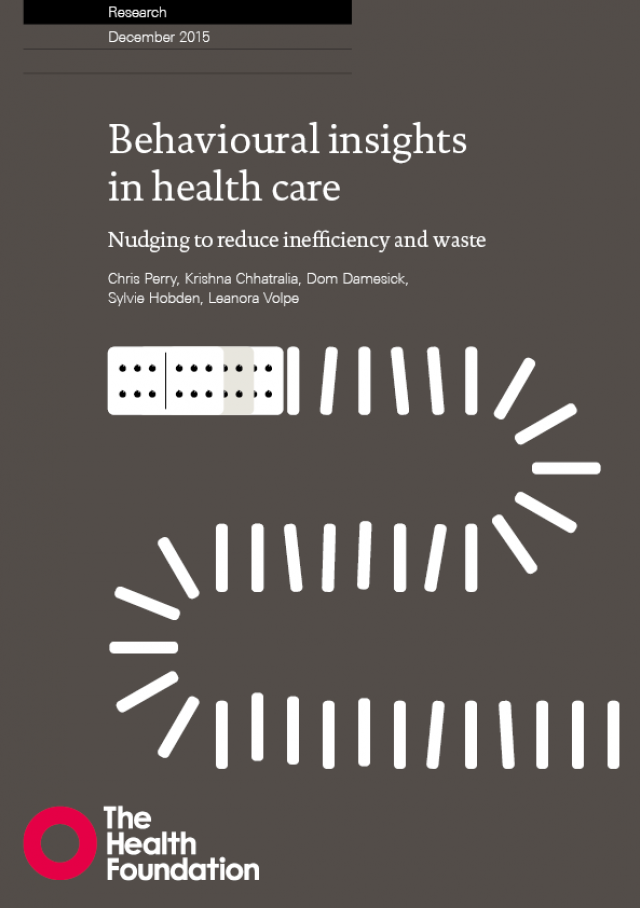Behavioural insights in health care Nudging to reduce inefficiency and waste
December 2015

Key points
- Nudge-type interventions have the potential for changing behaviours, increasing efficiency and reducing waste in health care.
- There are several areas of inefficiency and waste to which nudge-type interventions might be productively applied.
- No ‘magic bullets’ exist when it comes to behaviour change and no one nudge-type intervention is guaranteed to work in changing health care-related behaviours. However, there are opportunities and considerations for those developing nudge-type interventions.
Health care spending is rising and the NHS faces a funding gap of up to £30bn in the period to 2020. Therefore, making health care more sustainable by reducing inefficiency and waste is critical.
Individual behaviour lies at the heart of this issue. Health care consumers’ behaviours are major determinants of their health, while health care providers’ behaviours are major determinants of whether the best and most appropriate care is delivered. However, the behaviours of both can be inconsistent with their intentions, leading to outcomes that could be improved.
It has been suggested that nudges – approaches that steer people in certain directions while maintaining their freedom of choice – might offer an effective way to change behaviour and improve outcomes at lower cost than traditional policy tools.
Nudges have been applied across a wide range of areas in the UK and globally. However, there is relatively little in the way of coverage of nudge-type behaviour change interventions to health care specifically and some uncertainty about how effective nudges are in bringing about desirable behaviour change.
This review begins to address this gap by providing a map of the evidence of the application of nudge-type interventions in health care and considering opportunities for reducing inefficiency and waste in health care.
The use of nudge-type interventions in health care is still relatively new, although emerging evidence suggests that they have potential to improve efficiency of health care services if suitably applied. However, the evidence available is highly variable in terms of quality, relevance to health care and behaviour change impact. While nudge-type interventions hold much promise, it is important that interventions clearly build on existing research and theory. If not then nudging in health care is more likely to contribute to inefficiency and waste than reduce it.
Further reading
Work with us
We look for talented and passionate individuals as everyone at the Health Foundation has an important role to play.
View current vacanciesThe Q community
Q is an initiative connecting people with improvement expertise across the UK.
Find out more

